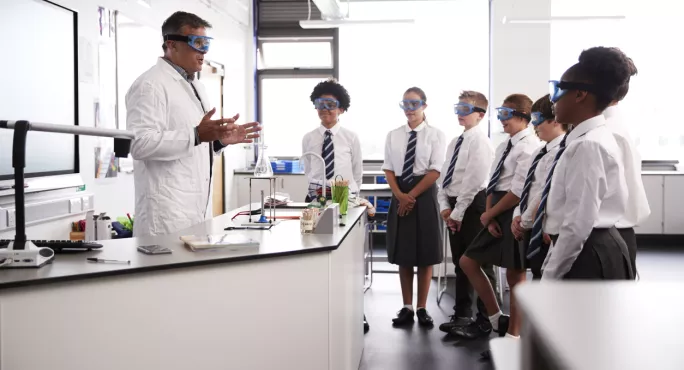Taking part in international tests has forced many school systems to adopt “reductionist” science curricula and “a narrow range of pedagogies”, researchers have warned.
Tests like the Organisation for Economic Cooperation and Development’s (OECD) Programme for International Student Assessment (Pisa) have failed to provide information about scientific literacy in “any useful shape or form”, states an academic paper published in the Journal for Activist Science and Technology Education.
The paper, co-authored by Professor Justin Dillon, from the University of Exeter, and Dr Lucy Avraamidou, from the University of Groningen, examines the future of science education in a post-Covid world.
It finds that a focus on outcomes from international tests is failing to provide students with the skills they will need in future.
Asked if he’d advocate for schools to stop taking part in Pisa, Professor Dillon told Tes: “Yes.”
Research: Pisa data ‘incredibly underused’, says academic
Explainer: What is the Pisa test and what does it measure?
Comment: Overworked teachers + high stakes tests ≠ Pisa success
But, he added: “It would take a brave secretary of state for education to make that argument.”
Should UK schools take part in Pisa global rankings?
However, he suggested teachers would take a different view. “I don’t think schools, or many people in education, would say, ‘We need to stick with Pisa,’” he said.
Prof Dillon identified public mistrust of science, seen in widespread questioning of the use of vaccines or face masks, as a sign that the curriculum is not working.
He said: “One of the reasons for our curriculum not working is that it hasn’t responded to the needs of society, and part of that is because Pisa has focused politicians on those sort of outcomes [that Pisa measures] and they have not stepped back and asked bigger questions.”
For example, the researchers argue, children need to learn more about the complexity of research.
Prof Dillon said: “Too many people are not functionally scientifically literate. What scientists do, what kinds of data they collect and how they analyse those data to form conclusions, remains a mystery for most young people.”
Dirk Hastedt, executive director of the International Association for the Evaluation of International Achievement - which runs the Trends in International Mathematics and Science Study (Timss) - acknowledged there were limitations to international tests.
But, despite the limitations, assessments such as Timss were unique, he said, monitoring systems over time within a robust international framework and being largely independent of any single political system, and with data freely available to the public.
“When properly understood and analysed, the data…[can] provide valuable opportunities to help inform policy decisions and research,” Dr Hastedt added.
A Department for Education spokesperson said: “Pisa is an important tool for review of the state of science education across the globe, and plays a vital role in assessing how well pupils use their science knowledge and skills to meet real-life challenges.
“Our science curriculum is on a par with that of the highest performing countries in the world, focusing on core scientific principles which children need to learn and including a range of content that ensures challenge and provides a foundation for further study.”
The OECD has been approached for comment.




